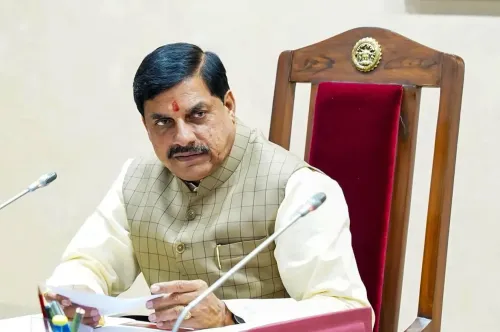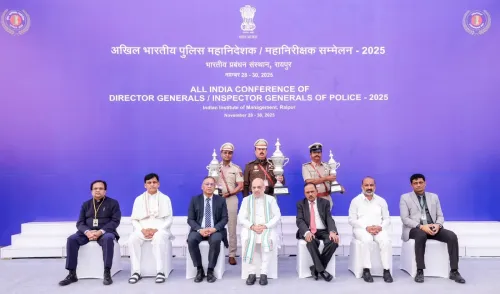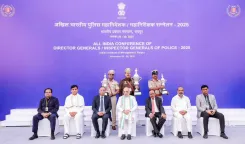Is the Concept of Multiple Marriages Fundamental to Islamic Personal Laws? Cleric Comments on Assam's Anti-Polygamy Bill

Synopsis
Key Takeaways
- Multiple marriages are recognized in Islamic law under strict conditions.
- The Assam Anti-Polygamy Bill imposes severe penalties for violations.
- Religious freedom is a constitutional right in India.
- Exceptions exist for tribal regions under specific constitutional provisions.
- Statistical trends indicate higher rates of polygamy in the majority community.
Lucknow, Nov 28 (NationPress) Following the Assam Assembly's passage of the Anti-Polygamy Bill, Maulana Khalid Rasheed Firangi Mahali, Chairman of the Lucknow Islamic Centre, emphasized that the idea of multiple marriages is a core element of Islamic personal law.
In a conversation with IANS, Maulana Firangi Mahali remarked: "The Constitution of India guarantees every citizen the right to practice their faith freely. Religious liberty is a fundamental right, allowing every community to adhere to its personal laws regarding faith matters."
He pointed out that while Islam does allow for multiple marriages, it enforces strict conditions for such unions.
"The notion of multiple marriages is an integral aspect of Islamic personal law, but Islam also specifies very stringent guidelines for this practice," he noted.
Referencing statistical trends, Maulana added: "When examining the real-world situation, the rate of individuals engaging in multiple marriages is actually higher within the majority community than in the minority community."
On Thursday, the Assam Assembly enacted the Bill to prohibit polygamy, categorizing it as a punishable offense, carrying a potential sentence of up to seven years in prison, alongside provisions for compensating the affected woman.
Chief Minister Himanta Biswa Sarma stated that the Assam Prohibition of Polygamy Bill, 2025, marks the initial step toward the establishment of new laws in the state, aligning with the Uniform Civil Code (UCC) Bill recently passed by the Uttarakhand Assembly.
The Bill stipulates that any individual convicted of entering into a second marriage while the first marriage is still valid could face up to seven years of imprisonment. Those concealing an existing marriage to marry again may face ten years in prison and a fine.
However, the legislation makes exceptions for Scheduled Tribes and areas governed by the Sixth Schedule of the Constitution, which grants autonomy to tribal regions in northeastern states.
The Bill characterizes 'polygamy' as the act of marrying or being married to another individual when either party already has a valid marriage or a living spouse without having legally divorced or annulled their previous marriage.









